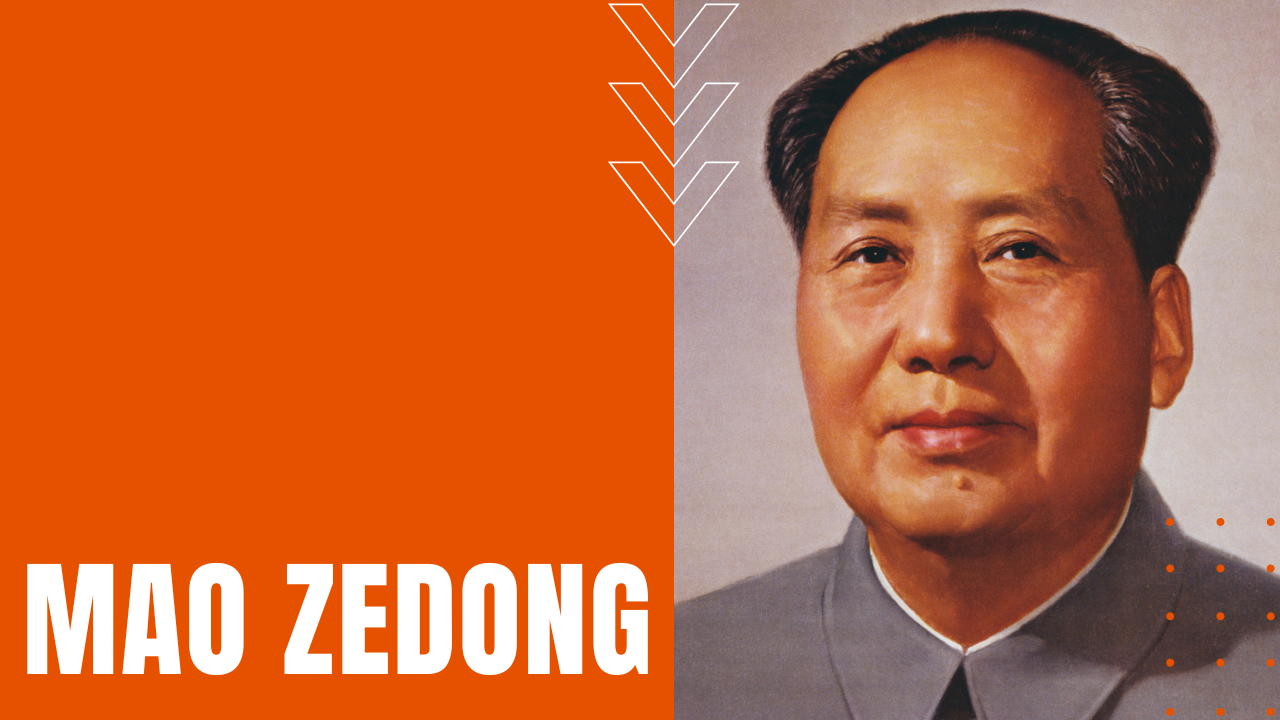Mao Zedong

Born in 1893 in Shaoshan China, Mao Zedong became a founding member of the Chinese Communist Party, while working as a Peking University librarian, and spearheading the “Autumn Harvest Uprising” in 1927, when he led a small army of peasants against their landlords in Hunan Province.
Mao’s Communist Party
During an on again off again civil war between the reigning Chinese Nationalist Party and the reform-driven Communist Party of China, Mao rose to cult status prominence during what became known as the “Long March,” which was a series of retreats by his Red Army forces from the pursuing National Army, covering some 5,600 miles in 370 days.
When China’s civil war resumed after Japan’s surrender following the Second Sino-Japanese War, Mao’s forces defeated the Nationalist government, forming the People’s Republic of China (PRC) on October 1st, 1949, which began his Marxist-Leninist single-party rule until his death in 1976.
Mao’s Legacy
Over the coming years, Mao solidified his power through his “Chinese Land Reform” initiatives against landlords, his “Campaign to Suppress Counterrevolutionaries” initiative and his “Three-anti and Five-anti Campaigns,” which were a series of reforms designed to rid Chinese cities of corruption and enemies of the state.
From 1953 to 1958, Mao drafted the first Constitution of the PRC, at the same time strengthening China’s nuclear arsenal, which further drove a wedge in China’s relationships with the Soviet Union. From 1958 to early 1960, Mao launched his “Great Leap Forward” campaign, which steered China away from an agriculturally-based society towards an industrialized state, leading to the deadliest famine in recorded human history, which resulted in the deaths of 15 to 55 million people between 1958 and 1962.
After launching his “Socialist Education Movement” or “four cleanups” in 1963, which intended to cleanse politics, the economy, internal organization and communist ideology. In 1966, Mao initiated China’s 10-year “Cultural Revolution,” which was marked by violent class struggles, the widespread destruction of cultural artifacts and Chinese heritage, the persecution of tens of millions of upperclass or bourgeois Chinese, with death tolls ranging from hundreds of thousands to many millions.
Following years of declining health, Mao suffered a series of heart attacks in 1976, which ended the Cultural Revolution upon his death at age 82, making Mao Zedong, one of the most impactful world leaders of the 20th century.
